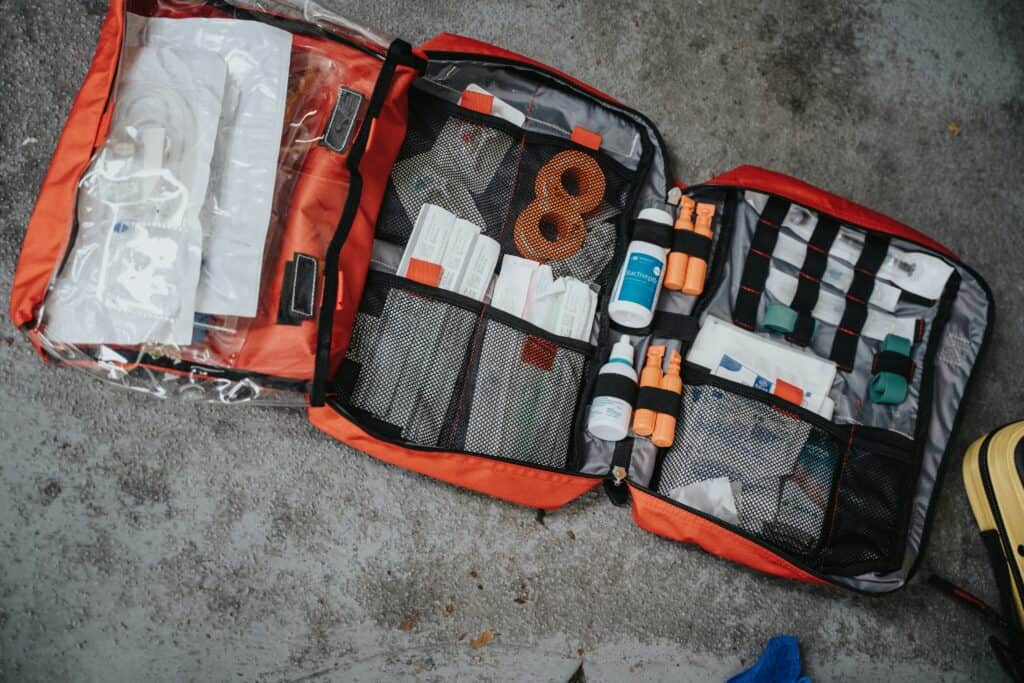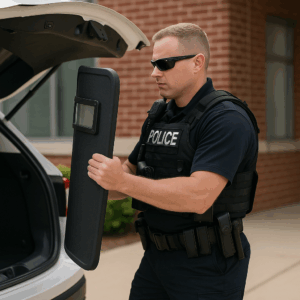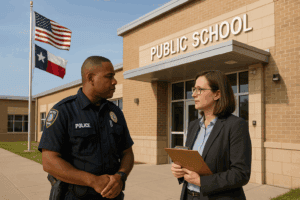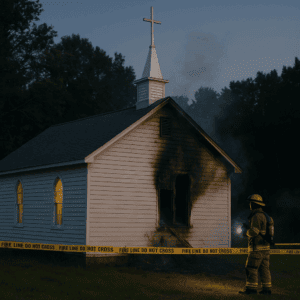In today’s world, ensuring the safety and security of church members and facilities has become a vital concern for congregations. Establishing a church security team can significantly contribute to maintaining a safe environment during worship, events, and gatherings. A well-structured security team can effectively respond to various situations, including medical emergencies, disruptions, or even potential threats posed by intruders.
The success of a church security team relies heavily on its leadership, and selecting the right individual for this critical role is essential. The security team leader should ideally possess experience in law enforcement, military, or other security-related fields. This individual should not only be knowledgeable in security measures and emergency response plans but also display strong communication skills to effectively guide their team during potential incidents.
In addition to expertise in security, the church security team leader should be a trusted congregation member, demonstrating a strong commitment to the church’s values and community. This will enable them to work closely with church leadership and create a security plan tailored to the unique needs and culture of the congregation. Collaboration between the security team, church leaders, and members helps reinforce a sense of shared responsibility for maintaining a safe and welcoming atmosphere for all.
Building a Church Security Team
Identifying Security Team Members
When building a church security team, it’s important to carefully select members who are committed to the church’s mission and dedicated to maintaining a safe environment. Team members should be individuals with diverse skill sets, backgrounds, and experiences. This will ensure effective communication and coordination within the team. Look for those willing to undergo training, work well in teams, and have the aptitude to handle various security situations. Ensuring a safe and secure environment is a top priority for church leaders, and having a reliable security team is the first crucial step.
Roles and Responsibilities of Security Team Members
The roles and responsibilities of church security team members may vary depending on each individual’s unique skills and areas of expertise. Responsibilities could include conducting risk assessments, developing emergency plans, and providing medical aid. Communication is essential, as all team members must stay informed and prepared to handle any security issue that may arise.
Some general roles for security team members include:
- Monitoring entrances and exits
- Maintaining a visible presence during church services and events
- Responding to emergencies or suspicious activities
- Coordinating with local law enforcement and first responders when necessary
Leadership in Church Security
Strong leadership is necessary to oversee the security team and ensure they stay focused on the church’s mission while managing the safety of the congregation. The church board, elders, or council, is typically responsible for creating a security plan and managing the security team. Leaders should be able to communicate effectively with team members, congregation members, and local authorities.
Leadership in church security involves:
- Developing and updating security plans
- Providing training and resources to team members
- Communicating with other church leaders and law enforcement agencies
- Continuously assessing and improving the security team’s effectiveness
Implementing a solid church security plan with strong leadership and a dedicated team helps maintain a secure and welcoming environment for the congregation and visitors alike.
Implementing a Church Security Plan
Developing Policies and Procedures
Creating a comprehensive church security plan begins with developing clear policies and procedures. A security team should establish safety and security policies that align with the church’s mission and vision. This involves conducting a thorough risk assessment to identify potential threats and vulnerabilities and creating guidelines to address them. By setting a strong foundation with appropriate policies and procedures, the church security team can effectively mitigate risk and contribute to a safer worship environment.
Organizing Regular Training Sessions
Training is an essential component of any comprehensive security plan. Organizing regular training sessions helps ensure that all security team members are knowledgeable about their roles and responsibilities, as well as any updates to existing policies. These training sessions may include drills, scenario-based exercises, and discussions on best practices for handling various security incidents. Moreover, it is crucial to conduct ongoing training to accommodate new team members, refine existing skills, and stay up-to-date with new security threats and solutions.
Setting Up a Chain of Command
Establishing a clear chain of command within the church security team is vital in ensuring efficient communication and decision-making during both routine operations and emergencies. A well-defined chain of command helps in coordinating the efforts of the security team with other church staff and volunteers.
An oversight board or council should be responsible for creating and managing a security plan while working closely with the security team to bring the plan to fruition. Regular meetings and checkpoints should be set up to assess the performance and effectiveness of the security measures in place and make necessary adjustments as needed.
Ensuring Safety and Security
Risk Assessment and Management
A church security team should begin by conducting a comprehensive risk assessment to identify potential threats and vulnerabilities. This process includes evaluating the church’s physical layout, assessing current safety and security measures, and identifying areas that may require improvement.
It is important for the team leader to have a clear understanding of the potential risks and develop appropriate strategies to mitigate them. This may involve implementing safety policies, procedures, and training programs to ensure a peaceful environment for the congregation.
Maintaining a safe and secure environment may also encompass addressing concerns such as:
- Health issues
- Mental health issues
- Accidents
- Liability
- Child safety
- Relational conflict
Having proper protocols in place for handling these issues can enhance the overall security of the church.
Responding to Emergency Situations

The church security team leader should ensure that their team is well-equipped to respond effectively to emergency situations like accidents, medical emergencies, fires, or potential threats. Adequate training in first aid, CPR, and emergency response procedures is crucial for minimizing the impact of such incidents and protecting the well-being of church members.
Coordination with local law enforcement and first responders can also be beneficial for efficiently handling emergency situations. Establishing protocols for communication and cooperation with external agencies can streamline the response to emergencies, further enhancing church safety and security.
Maintaining Vigilance and Awareness
A successful church security team needs to maintain vigilance and situational awareness at all times. This involves regular security checks, monitoring suspicious activities, and addressing concerns as they arise. Encouraging congregants to be vigilant and report any unusual behavior or potential risks contributes to cultivating a safe and secure environment for worship.
Educating church members on safety issues, such as emergency evacuation plans and lockdown procedures, can also improve overall preparedness. By fostering a sense of shared responsibility among the congregation, the church security team can better ensure the safety and well-being of all members and visitors.
Engaging with Local Law Enforcement
Building Relationships with Law Enforcement Officers
Establishing a strong relationship with local law enforcement is a vital aspect of leading a church security team. Invite officers to visit the church facility to familiarize themselves with the layout and discuss potential security concerns. This collaboration between the security team and law enforcement officers strengthens communication and trust, benefiting both parties.
Implementing De-escalation Techniques
Security team leaders should prioritize training in de-escalation techniques, as these skills are essential in effectively dealing with conflicts and keeping church members safe. Local law enforcement officers may offer valuable guidance in adopting appropriate de-escalation strategies, which can be shared with the entire church security team. Investing in proper de-escalation training helps prevent dangerous situations from escalating, ultimately fostering a peaceful and secure atmosphere.
Coordinating with Firefighters
In addition to collaborating with law enforcement officers, it is crucial to maintain open communication and coordination with local firefighters. They can assist in developing and implementing fire safety plans and provide training on emergency evacuation procedures. Establishing a solid relationship with firefighters ensures a prompt and effective response to any fire-related incidents, ultimately safeguarding the well-being of the church community.
Frequently Asked Questions
What qualifications are needed for a church security team leader?
A church security team leader should possess a strong background in security or law enforcement, relevant training in emergency response and threat assessment, and experience in managing and leading a team. It is also important for the leader to have strong communication and interpersonal skills, a sense of responsibility and dedication to the safety and well-being of the congregation, and familiarity with the church’s specific needs and environment.
How should a church security team be structured?
A church security team should be structured to provide a well-rounded and coordinated approach to security, with clear roles and responsibilities assigned to each team member. The team can include individuals with different expertise, such as medical, technical, or legal knowledge, to address various aspects of security effectively. Additionally, the team should maintain a close relationship with the church leadership in order to ensure alignment with the church’s mission, values, and policies.
What are the main responsibilities of a church security team leader?
The primary responsibility of a church security team leader is to ensure the safety and security of all church members, staff, and visitors while maintaining a welcoming and peaceful environment. This involves prioritizing the well-being of the congregation and demonstrating a strong commitment to their protection. The leader should also develop and maintain security policies and procedures, manage the security team, assess potential threats and risks, and coordinate the response to any emergency situations that may arise.
How can a church security leader ensure effective communication and coordination within the team?
Effective communication and coordination within a church security team can be achieved through regular team meetings, clear communication channels, and an established chain of command. Encouraging open and ongoing dialogue among team members, providing regular training and support, and fostering a culture of collaboration is also essential for a well-functioning team.
What training programs should be conducted for a church security team?
Training programs for a church security team should be comprehensive and tailored to the unique needs of the church. Training should include aspects such as emergency response, threat assessment, de-escalation techniques, first aid, and legal considerations. Conducting regular drills and exercises can also help to assess the team’s preparedness and capabilities in a realistic environment.
How can a church security leader handle emergency situations?
Handling emergency situations requires a church security leader to remain calm, focused, and decisive, rapidly evaluating the situation and orchestrating an appropriate response. Effective communication with team members, church leadership, and first responders is key to ensuring a swift and coordinated effort. The leader should also have a thorough understanding of the church’s emergency response plans and procedures, and be prepared to make difficult decisions in high-stress situations to protect the congregation and staff.








